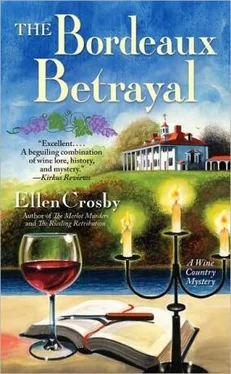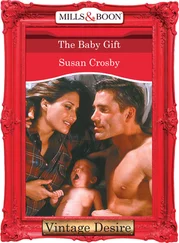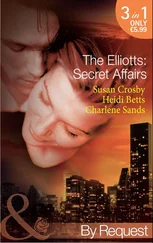Amanda noticed her, too. “Excuse me a moment,” she said and walked toward her daughter. She kept her voice low but Kyra, who looked as though she’d come to prove a point and embarrass her mother, did not.
“I told you I didn’t want to be here.” She folded her arms and looked away. “There’s nothing wrong with the way I’m dressed. I look fine.”
“Kyra—”
The girl bent and picked up a dirty satchel from the ground. “Can I go now? I have to meet someone. I showed up, didn’t I?”
Amanda looked as though she were trying to salvage whatever she could from the situation. “I want you in by midnight.”
Kyra slung the satchel over her shoulder and gazed at her mother with a look of contempt and incredulity. “I’ll be in when I feel like it.” She turned to leave. “Stupid cow.”
“Kyra!”
Her daughter walked away, head down and satchel bouncing on her back, but with a spring in her step that said she wasn’t sorry she’d just humiliated her mother in front of her friends. I felt sorry for both of them but I knew what I’d just witnessed was probably nothing compared to what went on at home.
After my mother died, Mia decided to pay God and everyone else back for her loss by getting into as much trouble as possible as fast as she could. Her downward spiral and the screaming matches with Leland over boys, school, booze, and drugs scared and exhausted all of us. No one knew if she was prepared to go past the point of no return when there’d be no saving her. I used to lie in bed at night and wonder whose life had become the living hell—Mia’s or the rest of the family’s? Then I would try to recall the past and which cracks she’d slipped through that I’d missed seeing, until finally one day I woke up to find my sweet baby sister had become a raging, rebellious stranger. Though Mia had calmed down since then, we still weren’t out of the woods. Last spring she’d nearly gone to jail after a drunk driving accident had resulted in a death.
Amanda stood with her back to us, watching Kyra walk away. When she joined us, two bright red spots flamed on her cheeks.
“I apologize for my daughter and her bad behavior.” Her voice was stiff with embarrassment.
“No apology necessary,” I said. “You probably won’t believe this, but she’ll grow out of it. Mia did.”
Amanda looked at me like she was trying to focus on my words. “Not if I don’t kill her first. There’s no reaching her, nothing we can do or say.” She gestured around her. “All this—she says it’s materialistic and pretentious. Says she loathes the way we live. Of course it didn’t stop her from taking the car we bought her. Or her horse. Or spending the summer backpacking in Europe when we paid for her.”
As she spoke, Pépé left and went over to the drinks’ cooler. When he came back he handed us two glasses of champagne.
Amanda’s hand shook when she took it. “Thank you, Luc.”
“Are you all right?” I asked her.
She sipped her champagne. “I will be. Sorry. I shouldn’t be talking about any of this. Look, the race is nearly finished. Let’s see who won.”
Mick arrived just before the third race to watch Sweet Emma, one of his three-year-old mares, run in the maiden flat race. It was the first time I’d seen his colors—blue and white squares with a red stripe in between and red trim on the collar and cuffs. The jockey’s red, white, and blue cap reminded me vaguely of a Union Jack.
He kissed me on the cheek and shook hands with Pépé. After a few pleasantries he moved on to the rest of the crowd—more social kisses for the women and a genial arm around the shoulders of the men. His kiss had been cool and dry and seemed devoid of affection. It was one of the many things I didn’t understand about him—his ability to turn his emotions on and off—and it kept me off-balance. Maybe he wanted it that way or maybe he was trying to keep our relationship private, but the second-guessing and uncertainty about where I stood with him on any given day was growing tiresome.
“I’d like to invite your friend to dinner,” Pépé said in my ear as Sweet Emma won and Mick opened a new bottle of champagne with a loud pop that sent liquid fizzing all over his hands.
Mick laughed and his eyes met mine. He blew me a kiss and a few women standing next to him noticed.
“It’s a nice idea, Pépé, but I don’t know—”
“I would like to become acquainted with this man who flirts with my granddaughter in front of everyone.”
“He’s not flirting—”
He clicked his tongue. “Lucie,” he said, “a man knows when another man is flirting with the woman standing next to him. Give an old Frenchman some credit.”
I smiled. “Okay, you can invite him to dinner.”
But Mick already had dinner plans. “I’d love to,” he said. “Unfortunately it’s business and I just can’t get out of it.”
“If it’s not late when you finish, come join us for dessert and coffee,” I said. “Or a brandy. We’re taking the last seating at the inn since my grandfather prefers dining after eight.”
Mick caressed my arm with the back of his hand. “I’ll try, but I think it’s going to go all evening.” He looked at Pépé. “Thank you for the invitation, Luc. Some other time, I hope. Lucie has spoken so much about you.”
“Mick!” Amanda called. “Are we betting on Casbah in this race or not? The riders will be up in a few minutes.”
Mick had entered Casbah, a black gelding with a white snip on his nose and two white socks, in the next race, which was three and a quarter miles over timber.
“Of course we’re betting on him. He’s going to win.” Mick pulled out his wallet and handed Amanda a hundred-dollar bill. “Here you go.”
“The bets are a dollar,” she said. “Though I’ll take it since the money is going to the Loudoun Hospice.”
But when the jockey riding Casbah came up to the starting line, the horse balked and didn’t want to take his place. Mick looked tense as the jockey trotted Casbah in a small circle, talking to him quietly. Finally the horse seemed to calm down. When the gun went off, he bolted ahead of the others, holding on to a lead of at least ten lengths for the first two miles.
“He looks good,” Amanda said to Mick.
“I don’t know,” Mick said. “Alberto is having trouble holding on to him.”
As he spoke one of Casbah’s hindlegs caught a timber jump and the horse stumbled. He managed to recover but Alberto lost his seat and tumbled to the ground. The jockey did not get up, remaining motionless as the rest of the field bore down on him. Unless the others coming up the hill realized what had happened and changed course, Alberto would be trampled to death.
The normally calm voice over the loudspeaker now sounded alarmed. “It looks like Casbah’s jockey has taken a fall. He’s not getting up—”
“Get up, Alberto, get up,” Mick said next to me, like a prayer. “Jesus, please. Get up.”
I saw one of the outriders go after Casbah, who was veering wildly, then suddenly Shane seemed to fly out of nowhere, galloping at full speed toward Alberto, who had gotten to his feet.
“Shane’s going after him,” Amanda said. “I don’t think he has enough time—” She put her hand over her mouth.
“They’re both going to be killed,” I said. “The rest of the field is coming up too fast.”
“Give me your binoculars!” Mick stood up on the fence for a better view and grabbed them from Amanda. “Come on, come on. Do it, Shane. Get him!”
I held my breath as Shane reached out a hand to Alberto, who grabbed it, and swung up behind him in the saddle just as the next horse cleared the jump, followed by the rest of the field.
Читать дальше












